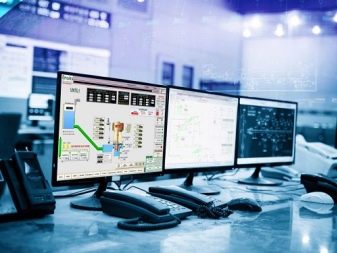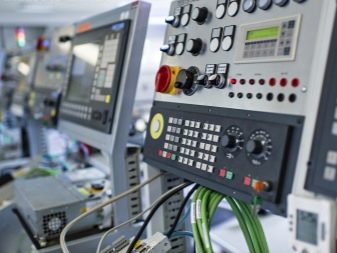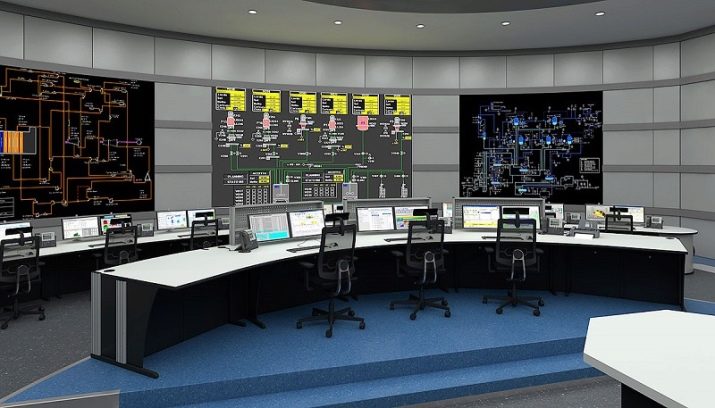An engineer of automated process control systems is an important employee without whom no modern enterprise can fully function. Today in our material we will talk about the features of this position, the responsibilities that a professional performs, and also that a high-class employee must know and be able to effectively and successfully fulfill his functional tasks.
Features
An industrial control system engineer (an abbreviation for abbreviation is an engineer of automated process control systems) is a person which performs the tasks of management and control, as well as automation of various technological processes in the enterprise. An automation designer also creates and designs control devices and creates appropriate algorithms. In general, the work of a leading specialist is rather complicated and complex, since he is fully responsible for the implementation of a number of works that are related to debugging, introduction to use and maintenance of automated process control systems.
The first stage of the employee’s work is setting up the necessary software parameters for the work. Moreover, this process is carried out taking into account a single automation object of a single software and hardware structure.
An industrial control system engineer not only launches systems, but also comes up with schematic solutions for automation cabinets and selects the equipment most suitable for a particular case.

Responsibilities
Engineer of automated process control systems carries out its work on the basis of a special document called the professional standard. In addition to the professional standard, the specialist is guided by the job description. Both of these documents are presented to the applicant for review before the specialist is finally hired. Thanks to this, the employer can finally be convinced of the high competence of the future employee, and the applicant, in turn, can assess his abilities and make sure that he can fully perform his job functions.
Consider the most important responsibilities of an industrial control system engineer:
- ACS design through the use of special mathematical and economic methods and principles;
- introduction of developed ACS in production activities;
- study and analysis of organization management methods;
- drawing up technical specifications for other employees;
- creation of technological systems for automated control systems
- monitoring the activities of lower-level employees;
- creation of methodological and normative materials;
- development of special methodological documentation;
- conducting activities to support developed projects and programs;
- participation in preparatory work;
- testing equipment and materials;
- drawing up plans and work schedules;
- writing instructions, explanatory notes and guidelines;
- examination of technical documentation;
- monitoring compliance with the necessary requirements and standards, etc.
Although the job description of an engineer of automated process control systems is a standardized document, Some employers may modify or supplement its content depending on individual needs and wishes. Respectively, You must be prepared for such a situation and be able to quickly adapt to changing environmental conditions.
Among other things, it should be borne in mind that job management provides liability for the failure or improper performance by an engineer of automated process control systems of their professional duties. Thus, an unscrupulous and incompetent employee may receive a disciplinary reprimand or even lose his job.


Knowledge and skills
According to the requirements that employers put forward in relation to specialists occupying the position of engineers of automated process control systems, an employee must know a large amount of specialized information, as well as have professional skills. Consider the main ones:
- knowledge of specialized normative legal acts, laws and by-laws (for example, decrees and orders) that govern work with process control systems;
- knowledge of the latest data related to technical and technological development;
- knowledge of the design features and distinctive characteristics of the equipment, materials and other technical means used;
- the ability to correctly use a variety of information processing systems;
- knowledge of economic and mathematical methods;
- knowledge of labor law;
- knowledge of safety rules;
- the ability to put working standards into practice;
- ability to fill in accounting and reporting documents, etc.
In addition, many employers make demands. not only to professional, but also to personal characteristics. For example, in a vacancy, it may be indicated that the applicant should possess such qualities as stress resistance, responsibility, diligence, punctuality, good memory, a desire for personal development, etc.
It is believed that only the person who combines all the necessary professional and personal qualities will perform his job functions as efficiently as possible.


Education
As we discussed above, the work of an engineer in automated process control systems is very complex. In order for a specialist to correctly and fully fulfill all his professional duties, he must undergo appropriate specialized training. Depending on the specific place of work and the requirements of the employer, you may need a higher or secondary vocational education.
After an applicant graduates from school, he must choose a suitable university (for example, university or academy) or secondary education institution (for example, college, school or technical school). The choice of educational institution must be approached carefully. First, you need to make sure that a particular educational institution has the appropriate faculty and direction of training - you need to choose engineering or engineering and economic specialties. In addition, it is recommended that the closest attention be paid to the prestige and status of a university or college. The thing is that a large number of employers when hiring give preference to graduates of major metropolitan universities.
Depending on where and on what program you studied, the term of study can be from 3 to 6 years. At the same time, it is recommended to approach the training process as responsibly and carefully as possible, as some employers may ask you to present an extract from the diploma with grades - preference will be given to the applicant whose average mark is higher. In addition to theoretical training, you need to take care of all the necessary internships and practices, during which you will receive the necessary work experience, as well as hone existing and acquire new, but necessary for the work skills. Besides, If you prove yourself perfectly in practice, then subsequently this place can become your permanent place of work.
However, even after the completion of their basic education and job placement, it is very important to strive for continuous development and self-improvement. To do this, employees independently, as well as according to the requirements of the enterprise managers, regularly improve their skills. To do this, you need to attend relevant specialized courses, conferences, trainings, master classes and workshops.
Thus, you will always stay abreast of the latest trends, respectively, will become relevant and sought-after among employers highly qualified specialist.

Job
First of all, it should be noted that Engineer of automated process control systems is a good profession. She is interesting, popular and in demand. After a young man graduates from an educational institution, he can apply for the initial (or starting) position of the engineering department of a large or small enterprise. Very often, these specialists are engaged in work that is related to instrumentation and automation (or instrumentation). Sometimes students are still in the process of learning to determine their future field of activity. For this, many universities organize specialized groups.
For example, young specialists can work in the field of non-ferrous metal. In addition, many modern engineers of automated process control systems associate their work with a popular and developing field - programming. One way or another, but the specialists of automated process control systems can work both at state and private enterprises. Thus, we can conclude that This profession is characterized by a high level of versatility, as a specialist can apply the knowledge and experience gained in various fields of human activity.
It is also important to mention the fact that the salary of such specialists is quite high. The specific figures can vary significantly depending on the region of residence - it is obvious that the material remuneration of metropolitan specialists is much higher than for those workers who work in the provinces.
Also, wages vary depending on qualifications and experience, as well as on a particular enterprise. In any case, its size is above the national average.











